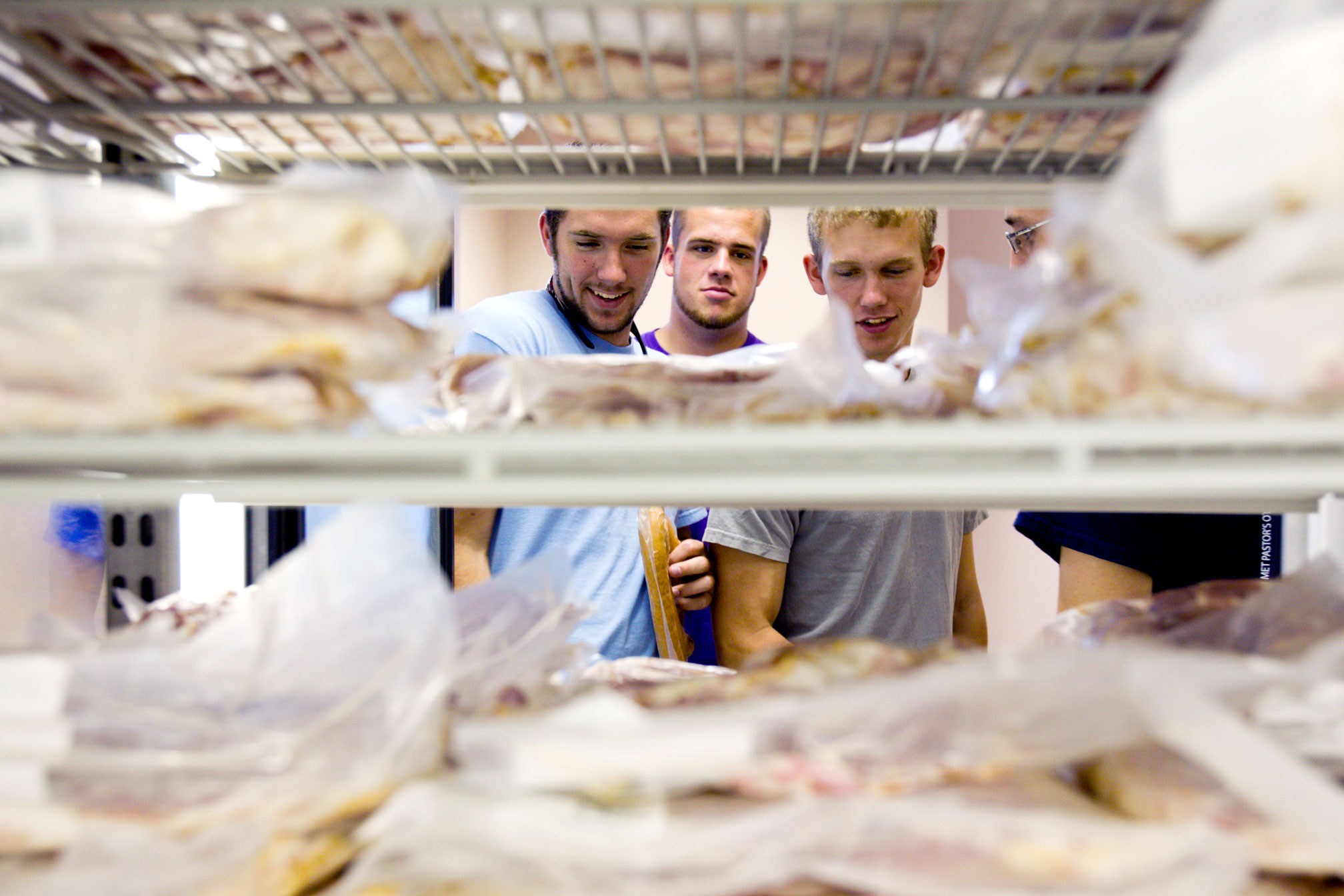Where’s the beef?
On campus, it’s at the Meat Science and Technology’s Center’s Friday afternoon meat sale.
In a red and tan brick building located across from the Ramsey Student Center, freezers full of freshly cut, locally-raised beef, pork and the occasional lamb are on sale to the public every Friday from 1-5 p.m.
It’s “steaks across the street” to Jennifer Stewart, associate director for programs and outdoor recreation at the Ramsey Student Center, who has been going to the sale as long as she’s worked for the university.
And while Friday Steak Nights are part of the inspiration for her visits, she also likes that the meat is locally grown, not shipped from across the country or the world, so she can feel like she’s doing her part to take care of the planet.
All the meat at the sale comes from the university’s hog, beef and sheep farms in Clarke and Oglethorpe counties. The animals grow up on the farms and can be used for research purposes like feeding trials to see if they’ll eat distiller’s grain, how much of it they will eat and if it affects meat quality. Ryan Crowe, who heads up the meat sale as lab manager at the Meat Science and Technology Center and buys all of his steaks at the sale, says it doesn’t affect the quality.
The meat sale includes beef and pork items ranging in price from fresh ham at $1.40 a pound to tenderloin steaks at $12.09 a pound. And as the center’s not a for-profit venture, meat prices tend to be $1 or more less per pound than the grocery store.
Items in the center’s freezer vary weekly, but include pork chops, cheesy smoked sausage, New York strip steak, ground beef and more. The meat at the center is all USDA inspected and certified.
The meat sale has been on East Campus since 1998, but dates back roughly 30 years in various forms. Its roots are in teaching, research and extension use.
It’s an off-shoot of the “Introductory Meat Science” class, where students learn about meat inspection, factors influencing meat quality, meat processing, and meat safety and quality control. The meat the students process—beef, pork and lamb— is what ends up in the sale.
For extension the animals are used to teach meat judging for high school students in Future Farmers of America.
The facility also is used to teach culinary school students and meat sellers about different cuts of meats.


